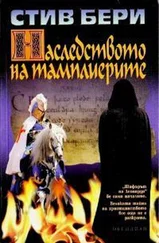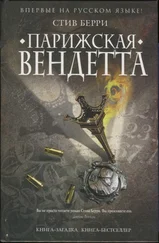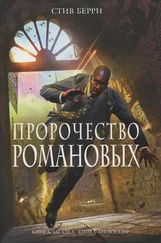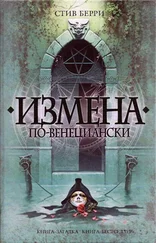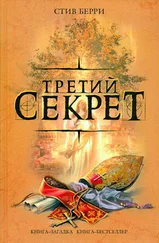“Why did Bormann even want Braun?” Cassiopeia asked. “Historians universally agree that he thought her ignorant and shallow. Just let her go. Be rid of her.”
“She was Hitler’s, and that gave her value. I recall when he learned she was pregnant the second time. He simply smiled and ordered their marriage. He did not love her. He simply wanted to possess her. She never argued with the decision. That was not her way.”
He decided to bring the conversation back on a relevant track. “What happened to the infant boys after Braun’s death?”
“One was sent away. The other Luis raised, until the boy died in a fall.”
“Where was the one who lived sent?” Cassiopeia asked.
“Germany.”
“Why did he keep one?”
“He’d fathered ten children by his first wife. He was proud of that. But he hated when all of his children publicly rejected their heritage. His eldest even became a priest after the war, which particularly galled him. So the infant boy was to be his legacy, someone who would worship him unconditionally.”
“What happened after the one boy was killed?” Cotton asked.
“It was the only time I ever saw him shed a tear. Quite a frightening sight, actually. The sadness of Martin Bormann.”
He caught the sarcasm and registered the resentment. He wanted to understand it further. “I read your letters to your sister. Why did you remain here if you truly hated Bormann?”
“It was my duty. I was young, and that concept meant something to me. Perhaps, on reflection, it was foolish, but it did not seem so at the time. Then, after the Widow died, I stayed for the boy. Luis was immeasurably cruel to the child. He forced him to keep absolutely quiet and punished him severely with a dog whip or, even worse, with kicks. I recall once when he beat him because he was afraid of a large dog. He called it discipline, but it was nothing more than abuse. The boy needed me around. He and I spent a lot of time together. Then after he died, I stayed for myself. By then I’d met my wife, fallen in love with both her and this land. I was somebody here. Thomas Bruin. I would have been nothing anywhere else.”
He wanted to know more about Schüb himself. “Why did you fake your death?”
“Two years ago Pohl began to plan his campaign for the chancellorship. He also began to assert himself with me. Prying, wanting more and more information, assistance, money. I thought it best that I leave the scene. So my death by natural causes was announced. There was a funeral, then I left the country and have lived elsewhere ever since. Rarely have I ventured back here.”
“Where do you live?” Cotton asked.
“Switzerland. I am another person there, too. An old eccentric who bothers no one. But the possibility that Theodor Pohl could indeed become chancellor of Germany repulses me. He also used my name to entice the current chancellor to investigate things in Chile. Of course, he believes me dead. The entire web he’s conceived jeopardizes everything Ada and I have done for the past six decades. I cannot allow him to succeed.”
He could sense a man with a mission. “You know everything, don’t you? All the secrets.”
A distant sound caught his attention, and Cotton jerked his head to one side and focused out into the darkness beyond the trees.
“Hyenas,” Schüb said. “Roaming the night. They and the jackals stay close to the gazelles, looking for the weak, but never do they meld. Predators are like that.”
He looked back at the old man and waited for an answer to his question.
“ Ja, Herr Malone. I am the only one left alive who knows it all.”
Schüb strolled down the brick walk. The sun hung high in the African sky and baked the streets and rooftops of Johannesburg with blistering heat. He carried the baby gently in his arms, cradling the infant to his damp shirt, careful to ensure that the sun never found the milky white skin.
He stopped for a moment and studied the child.
The boy was sleeping, wrapped in a blanket and dressed in the christening gown that Eva Braun had labored the past few months to create. No one knew that she was carrying twins, and the midwife’s abilities had been severely challenged with the difficult delivery. He’d asked Bormann if a doctor should be called but the demon refused, and the Widow died in a burst of agony as the second infant boy emerged from her womb. Bormann had said nothing afterward, simply staring at Braun’s body for a few seconds, then turning his attention to his two sons, studying each carefully, examining their bluish skin, using a damp cloth to swipe away the blood and fluid, perusing their features like a potential buyer might study an antique. “This one seems stronger,” Bormann said, pointing to the child on the left.
Still affected by Braun’s death, Schüb forced himself to look away from the corpse on the bed, to the crib that one of the Africans had crafted specially for the occasion. “Does it matter?”
Bormann’s gaze bore into him. “It matters a great deal.”
“Your wife is dead.”
“I do not need to be reminded of the obvious.”
“You still intend to consummate the transaction?”
“Of course.”
“What of your wife?”
“Bury her somewhere that the remains will not be found.”
“Should she not be remembered?”
Bormann reached into the crib and lifted the infant on the left. “This one will be mine. He is all the memory I require. Take the other and keep the appointment.”
He continued to study that infant, now safe in his arms, the one who’d lain on the right.
The Rejected One.
He was less than four hours old and had already experienced his first car ride on the trip north from the Free State. For the past month the couple had been waiting in Johannesburg, as Braun’s delivery time drew near. All had been arranged months ago, just after Braun had discovered she was pregnant and she and Bormann married. If she’d lived, Braun would have been told that the infant died at birth. He did not agree with Bormann on that issue, but had wisely kept his objections to himself. His employer was not a man given to debate or criticism.
He gently stroked the boy’s cheek. The lips suckled as if it was time to feed. He had nothing to offer, so he tightened his grip on the tiny body and stepped to the entrance of the Hotel Maseru. On the second floor, in a corner room, a man opened the door. His round head was shaved clean, as was his genial face. He was heavy limbed with puffy hands and sausage fingers. The woman standing beside him was soft and ample with a pleasant, flattish, slightly masculine face.
“Guten abend,” the man said as he closed the door.
The woman rushed to him and gazed at the baby. “Such a precious darling.” She held out her arms, and Schüb knew what she wanted.
He handed her the infant.
“ Liebling. So wonderful,” she said, her eyes watering and tears beginning to race down her cheeks. “What sex?”
“A boy,” Schüb said.
“How marvelous,” the woman said through her tears. She faced her husband. “A boy. Our son.”
The man drew close, his eyes, too, watering. He reached out and caressed the strands of matted black hair on the child’s head. “He is a miracle.”
Schüb knew he shouldn’t. But his orders were clear. “There is one condition. It applies to the name.”
The woman glanced up and smiled. “We know. What will he be called?”
“Theodor.”
CHAPTER FIFTY-SEVEN
Читать дальше


